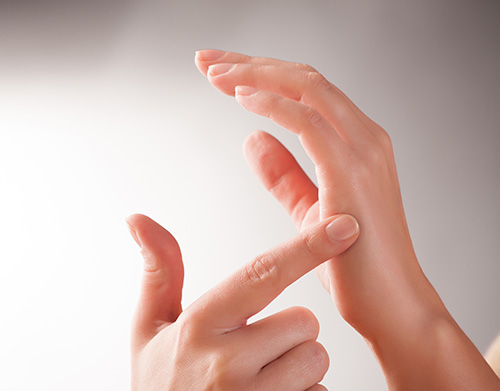EMOTIONAL FREEDOM TECHNIQUE/TAPPING
By Aisha T. McDonald, LMHC
Lead Trainer/Coordinator, United Way Broward
Recently someone disclosed to me that he was confused about what it meant to have Posttraumatic Stress (PTS) because so many individuals were “claiming that they had a history of trauma nowadays.” His confusion was genuine as he explained that he thought trauma only affected military veterans coming back from deployment, yet he seemed to be encountering what he referred to as “regular people saying they had PTS.”
Society’s view of PTS has typically been in line with this view, as for many years it had been the popularized concept of who was affected. In truth, trauma is the emotional response that occurs after any event that creates distress for the individual experiencing or witnessing it. It does not discriminate against race, ethnicity, gender identity, age or any other factor. The World Health Organization recognizes that PTS is increasingly becoming a leading cause of brain-based dysfunctions and mental illness across throughout the globe.
Internationally known trauma-healing expert Dr. Lori Leyden of the Create Global Healing organization defines the four conditions of trauma as anything that is unexpected or shocking; causes a sense of isolation, feelings of being trapped or not having resources; or an event that creates a real or perceived sense of death. She further defines trauma as a physiological process, a biochemical freeze response created in the brain and central nervous system when one is confronted with overwhelming fear.
In our continuing efforts to promote a community of resiliency, United Way Broward hosted Dr. Leyden as she facilitated a series of two-day Master Class trainings on the Emotional Freedom Technique (EFT) and tapping for trauma relief. Clinical EFT/Tapping Technique is an evidence-based method of brain-based somatic release that is designed to assist the brain and body in returning to its natural resourceful and resilient state without further triggering trauma reactions.
Dr. Leyden believes that trauma focus is essential in relief, healing and recovery. Through the stimulation of certain acupressure points on the body, EFT/Tapping Technique is able to stop the fight/flight/freeze response that is triggered by traumatic memories. After properly tapping on precise points of the body, she explains, such traumatic memories will no longer carry an emotional intensity, thus allowing full healing from the original trauma.
In a community like ours, which has been affected by a series of traumatic incidences – including the tragedy at Marjory Stoneman Douglas High School in Parkland – PTS can, indeed, be very real. An experience like Parkland not only affects those who directly experienced the shooting and witnessed the trauma, but also impacts the helpers and healers who work with affected individuals. With United Way training like EFT/Tapping Technique, we can add additional skills to our personal mental health tool belt and build a community of resiliency and healing.

